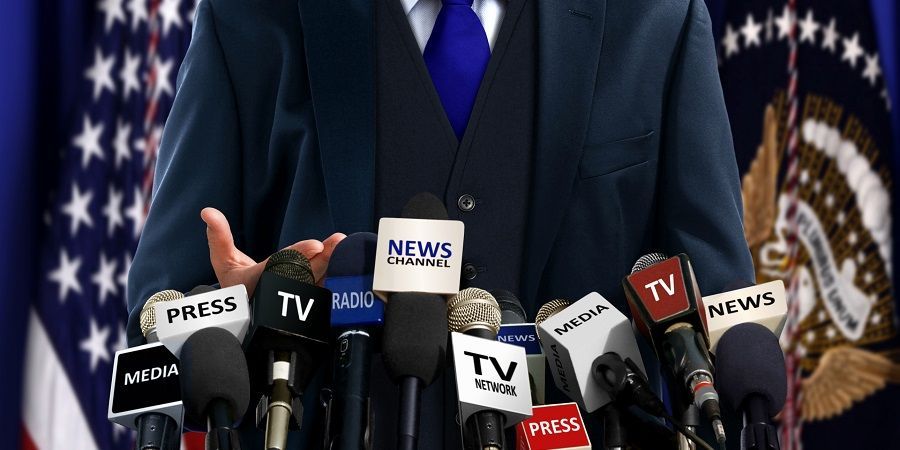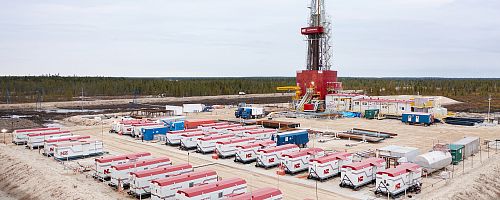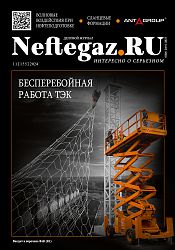Food Industry To Curb Prices
An agreement between the food industry and the government to freeze prices on a range of basic foodstuffs will be approved in the next few days, company representatives and government officials said Monday. The voluntary freeze, agreed on at a mee.

The voluntary freeze, agreed on at a meeting last week at the Agriculture Ministry, will help stave off discontent over recent sharp increases in food prices by fixing prices for the cheapest goods, such as milk, kefir and cream.
The list of food staples to be included in the price freeze has yet to be finalized, but a source in the Agriculture Ministry said the foodstuffs under discussion also included bread, sugar, cheese and vegetable oil, Kommersant reported Monday.
The deal is being seen as a way to combat rising inflation, which Finance Minister Alexei Kudrin said Thursday could hit double figures this year.
But food industry representatives warned that the price freeze could mean that producers and retailers would face increasing difficulties. Some said the government was looking to offload its share of the blame for rising inflation and that the industry had acted voluntarily to avoid a tougher price freeze being imposed.
From August to September prices for milk rose by 9.2 percent and for vegetable oil by 15 percent, according to a statement Friday by business forum Delovaya Rossia.
A spokeswoman for the Agriculture Ministry said an agreement between producers and retailers would be adopted some time this week.
Major dairy producers Wimm-Bill-Dann and Unimilk and supermarket chains Perekryostok, Metro and Mosmart have all agreed to the deal. A spokesman for retail umbrella group Acort, which has been negotiating on the retailers' behalf, could not be reached for comment Monday.
The price freeze will not be across the board on all foodstuffs but will only affect the cheapest products, a spokeswoman for the Economic Development and Trade Ministry said.
Vladimir Labinov, head of the Dairy Union, confirmed that the government, producers and retailers were in talks over the list of foodstuffs and the period of the price freeze, among other things.
Preliminarily, milk with a fat content of up to 2.5 percent, 15-percent-fat sour cream and low-fat kefir are among the products for which prices will be frozen, Labinov said, adding that, initially, the authorities also wanted butter and cheese on the list.
"Everything should be finalized on Wednesday," Labinov said.
According to the agreement, stores' markup would have to be no more than 10 percent, Labinov added.
The price freeze will be backdated, to run from Oct. 15 until the end of the year, the Economic Development and Trade Ministry spokeswoman confirmed, without explaining further.
"It's definitely only a temporary agreement," said Anton Saraikin, a spokesman for leading dairy producer Wimm-Bill-Dann.
The ministry spokeswoman dismissed suggestions that producers and retailers were being pressurized into agreeing to the price freezes. "It is entirely voluntary," she said.
So far, negotiations have been conducted only with major retailers, she said. The country's retail market remains overwhelmingly unconsolidated, with the majority of food shopping still done in small stores and kiosks. "We hope that the smaller players will then fall into line," the spokeswoman said.
Saraikin said the initiative for the price freeze agreement had come from the producers and had then been backed by the government.
As yet producers are refusing to give any figures about the overall costs of the price freeze, but times look set to get tougher. "We haven't made any calculations yet, but we understand that we will face some difficulties," Saraikin said. "We have made the first step, but we believe that government should improve the situation radically by supporting agriculture in Russia."
An executive working in the dairy industry, speaking on condition of anonymity, lambasted the price freeze. "This is the theater of the absurd," he said. "Everybody's indignant."
Unable to curb inflation in the run-up to the parliamentary and presidential elections, the government is instead passing the buck to producers and retailers, he said.
Market players were especially disappointed that the Economic Development and Trade Ministry, which was considered a bulwark of liberal policies under German Gref, was participating in the price freeze. "Next time we'll be told that two times two equals five," the executive said.
On Friday, Delovaya Rossia released a statement criticizing the government's previous anti-inflation measures, including lowering import tariffs on milk products, as "hardly effective, insufficient and only temporary."
The statement put the recent sharp price rises down to a complex combination of rising production costs, increased demand and a lack of competition.
Roman Shalimov, general director for market research firm Tochka Rosta, said the companies had simply jumped before they were pushed in an attempt to minimize the damage. "By signing this deal the producers have chosen the lesser of two evils," Shalimov said. The companies put forward the agreement in an attempt to pre-empt the government and restrict the number of products affected by the price freeze, he said. Ahead of the elections, politicians are eager to appeal to the elderly and low-paid sections of society, which have been most affected by the price rises, he said.
Government officials, led by President Vladimir Putin and Prime Minister Viktor Zubkov, have put the blame for price rises onto the producers and retailers. In his national phone-in last week, Putin attacked regional monopolies in the food market for pushing up prices, while Zubkov was shown on state television checking prices at stores.
A poll released Monday by the Levada Center, an independent polling agency, showed that over 40 percent of Russians now blame retailers and producers for the price hikes.













